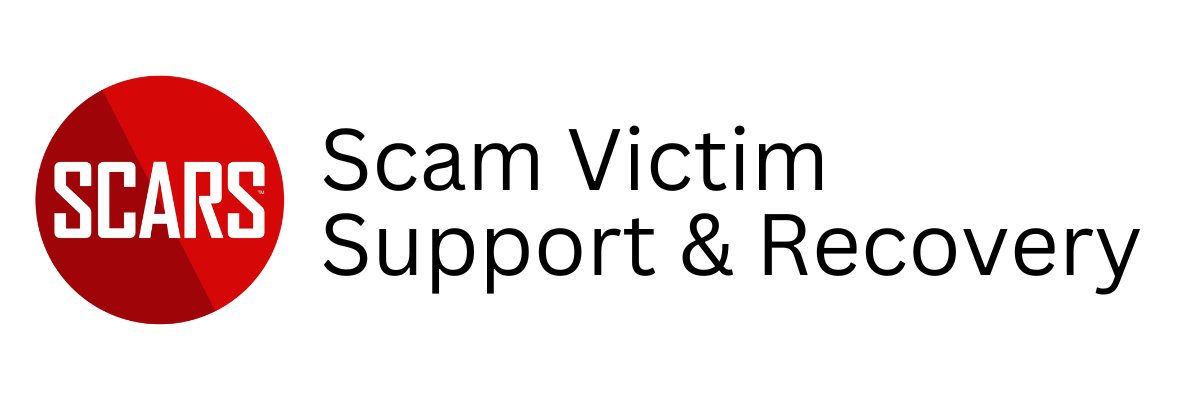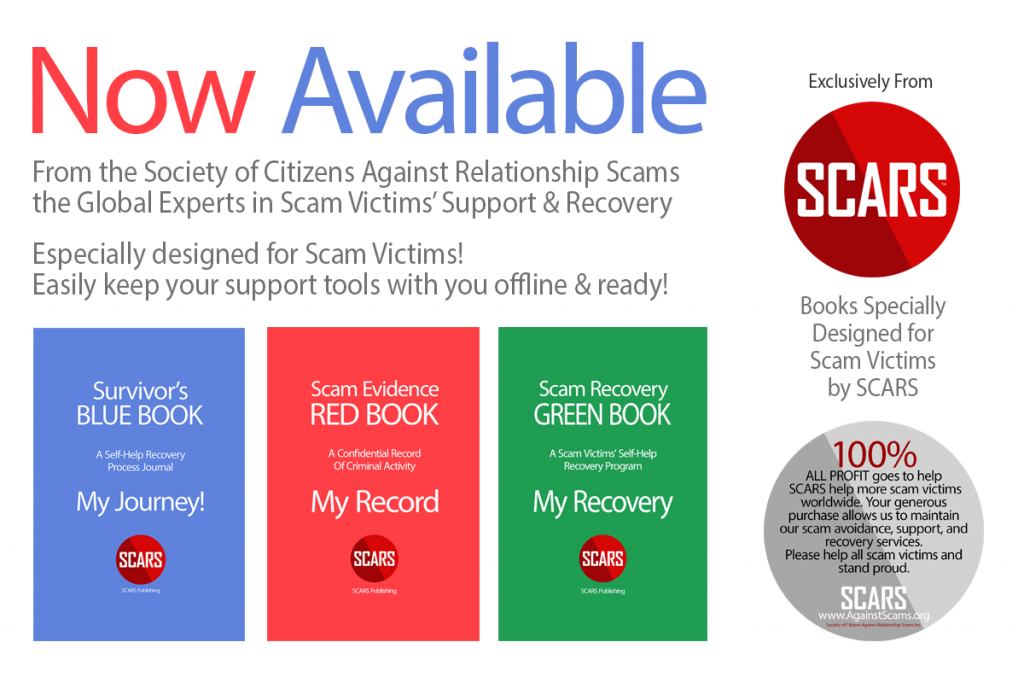Importance of Scam Victims Avoiding the Vigilante Trap
Staying Focused on Recovery is Essential for New Scam Victims
Avoid Becoming Involved in Scam Baiting & Endless Fake Profile Exposing
For New Scam Victims
After reading this page, please visit our SCARS 3 Steps Guide for New Scam Victims at newvictim.AgainstScams.org
Sign Up for SCARS Scam Victim Support & Recovery Groups at support.AgainstScams.org
The Pitfalls of Becoming a Vigilante for New Scam Victims – including Scam Baiting & Endless Exposing of Scammers or Fake Profiles
Introduction
Discovering that you’ve fallen victim to a scam can be an emotionally devastating experience. The aftermath can leave victims grappling with a range of emotions, from anger to shame. While it’s natural to want justice, engaging in any of the various forms of vigilantism, including scam baiting and other activities that fixate on the perpetrators, is not be the most constructive path to healing. In fact, it can stop your recovery in it tracks!
Emotional Toll of Scams
Scams often involve manipulation and deceit, leaving victims feeling violated and vulnerable – it is natural to feel this way, these feelings are valid. The emotional toll can be immense, leading individuals to seek ways to regain control and seek justice. However, focusing on the criminals hinders the crucial emotional and psychological recovery process.
The Temptation of Vigilantism
Upon discovering they’ve been scammed, some individuals are drawn to the idea of turning the tables on the criminals. Vigilante actions, such as scam baiting (intentionally engaging scammers to waste their time), may offer a fleeting sense of revenge but can prolong the victim’s exposure to the traumatic incident.
The Dangers of Vigilantism
Engaging in vigilantism can have significant consequences. Scammers are often part of sophisticated networks that include other forms of cybercriminals and identity thieves, and attempts at retaliation can expose victims to further risks, including identity theft, other cybercrime, or more elaborate scams. Additionally, engaging with scammers perpetuates a cycle of negative emotions, hindering the recovery process.
Focusing on Recovery
Recovery from a scam involves more than just financial restitution. Victims need to prioritize their emotional well-being, seeking support from friends, family, or mental health professionals. Dwelling on the perpetrators may divert attention from crucial aspects of recovery, such as rebuilding trust and self-esteem.
Legal Channels and Reporting
Rather than resorting to vigilantism, victims should focus on legal avenues for justice. Reporting the incident to law enforcement agencies, consumer protection bodies, or anti-fraud organizations can contribute to efforts to bring scammers to justice while allowing victims to maintain a healthy emotional distance.
Community Support and Awareness
New scam victims can find solace and support in community support groups, such as those offered by SCARS, where they can share experiences and coping strategies. Raising awareness about scams and supporting others going through similar ordeals can be empowering and contribute to preventing future scams.
Remember
While the desire for justice is understandable, new scam victims must exercise caution to avoid the pitfalls of vigilantism. Prioritizing emotional and psychological recovery, engaging with support networks, and reporting scams through legal channels are vital steps toward healing and preventing further victimization.
By shifting the focus from the criminals to personal well-being and community support, victims can navigate the aftermath of scams with resilience and strength.
Next Things to Learn – the Next Steps
- Importance for Scam Victims to Join a Professionally Managed Support & Recovery Group
- Join a Free Safe & Confidential SCARS Support & Recovery Group Now
- Importance of Learning for Scam Victims Recovering from Scams
- Importance of Trauma Therapy for Scam Victims
- Importance of Scam Victims Avoiding the Vigilante Trap
- SCARS Emotional Support & Recovery Program For Scam Victims Turning Them Into Scam Survivors
- Essential Information for New Scam Victims
The Latest SCARS Corporate Posts:
Disclaimer:
SCARS IS A DIGITAL PUBLISHER AND DOES NOT OFFER HEALTH OR MEDICAL ADVICE, LEGAL ADVICE, FINANCIAL ADVICE, OR SERVICES THAT SCARS IS NOT LICENSED OR REGISTERED TO PERFORM.
IF YOU’RE FACING A MEDICAL EMERGENCY, CALL YOUR LOCAL EMERGENCY SERVICES IMMEDIATELY, OR VISIT THE NEAREST EMERGENCY ROOM OR URGENT CARE CENTER. YOU SHOULD CONSULT YOUR HEALTHCARE PROVIDER BEFORE FOLLOWING ANY MEDICALLY RELATED INFORMATION PRESENTED ON OUR PAGES.
ALWAYS CONSULT A LICENSED ATTORNEY FOR ANY ADVICE REGARDING LEGAL MATTERS.
A LICENSED FINANCIAL OR TAX PROFESSIONAL SHOULD BE CONSULTED BEFORE ACTING ON ANY INFORMATION RELATING TO YOUR PERSONAL FINANCES OR TAX RELATED ISSUES AND INFORMATION.
This content and other material contained on the website, apps, newsletter, and products (“Content”), is general in nature and for informational purposes only and does not constitute medical, legal, or financial advice; the Content is not intended to be a substitute for licensed or regulated professional advice. Always consult your doctor or other qualified healthcare provider, lawyer, financial, or tax professional with any questions you may have regarding the educational information contained herein. SCARS makes no guarantees about the efficacy of information described on or in SCARS’ Content. The information contained is subject to change and is not intended to cover all possible situations or effects. SCARS does not recommend or endorse any specific professional or care provider, product, service, or other information that may be mentioned in SCARS’ websites, apps, and Content unless explicitly identified as such.
The disclaimers herein are provided on this page for ease of reference. These disclaimers supplement and are a part of SCARS’ website’s Terms of Use.
Legal Notices:
All original content is Copyright © 1991 – 2023 Society of Citizens Against Relationship Scams Inc. (D.B.A SCARS) All Rights Reserved Worldwide & Webwide. Third-party copyrights acknowledge. Incorporated in the U.S. State of Florida, DBA registered.
SCARS, SCARS|INTERNATIONAL, SCARS, SCARS|SUPPORT, SCARS, RSN, Romance Scams Now, SCARS|INTERNATION, SCARS|WORLDWIDE, SCARS|GLOBAL, SCARS, Society of Citizens Against Relationship Scams, Society of Citizens Against Romance Scams, SCARS|ANYSCAM, Project Anyscam, Anyscam, SCARS|GOFCH, GOFCH, SCARS|CHINA, SCARS|CDN, SCARS|UK, SCARS|LATINOAMERICA, SCARS|MEMBER, SCARS|VOLUNTEER, SCARS SCARS Australia, Cybercriminal Data Network, Cobalt Alert, Scam Victims Support Group, SCARS ANGELS, SCARS RANGERS, SCARS MARSHALLS, SCARS PARTNERS, are all trademarks of Society of Citizens Against Relationship Scams Inc., All Rights Reserved Worldwide
Contact the law firm for the Society of Citizens Against Relationship Scams Incorporated by email at legal@AgainstScams.org



